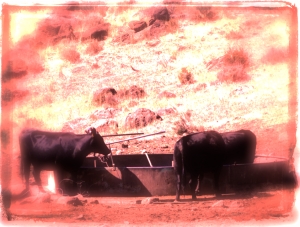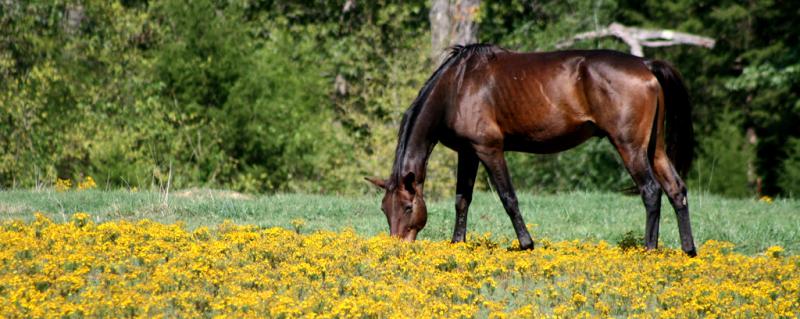We had a fairly good turnout. Here are some pictures.
_____________________________________________
Shocking Abuse Uncovered
| |
Imagine walking into a sale barn to see a horse lying on the floor with a bloated stomach and its head tied tightly to a feed trough. Imagine it was so incapacitated that it didn't even stand up or protect itself when auction visitors kick it as they walk by. Then imagine that next to this horse were other horses in equal or worse condition. This is exactly what investigators for Animals' Angels found when they attended recent sales at New Holland Auction in Pennsylvania. What they witnessed was outrageous and shocking. Throughout the holding pens were horses with swollen limbs, festering skin abrasions, devastating pelvic injuries, horses so emaciated it looked as though the poor things hadn't eaten in weeks, and babies sold with debilitating septic joint infections.
Sadly this is not the first time we have seen horses in such pitiful conditions at this sale. And if an injured horse seems to be receiving too much attention by visitors, it is simply removed to a dark, out of the way part of the barn by auction personnel, away from prying eyes.
On February 16, 2015, our investigators found piles of dead goats and sheep. Next to one of the "dead piles," was a sheep on the verge of death, left to die in the subzero temperatures. Sadly, our volunteers quickly realized the sheep was not alone in her tragic end. A goat had also been thrown away.
He was unable to get up because something was very wrong with his legs. This is the fate of animals that can't be sold at New Holland. They are tossed on to the "dead pile" like trash and forgotten while they slowly wither away and die, their last hours spent suffering and in pain.
Unfortunately, what the investigators observed is by far no isolated incident. In 2007, the auction was convicted of animal cruelty based on evidence provided by AA for almost the exact same crimes. Animals were ignored, left for dead, and quickly forgotten. All is not lost however! The auction was convicted and can be again!
We were outraged then and we are just as outraged now at how cruel some humans can be to their fellow living creatures. Heartbroken, but determined to end their misery, our investigators intervened on behalf of the poor goat and sheep left suffering and barely alive in the frigid temps. We contacted the local police to step in and to euthanize the languishing animals.
It is time to hold New Holland Auction accountable for the poor treatment of the animals in their care. Cruelty charges have been filed. Animals' Angels investigators will gladly take the stand as witnesses in the trial scheduled against the New Holland Auction on April 29th. We're gratified that our work in the field and willingness to testify will help obtain justice for these animals.
We will keep you advised on the outcome of the court case and once the legalities have concluded, we will release our full report on this investigation.
|
Will YOU be there for the Animals?
|
As shown by the New Holland Auction and many others, our investigations are a much needed resource to not only spread awareness, but to garner justice for the animals. However, we cannot do it without you!
As you know, horses and livestock around the country are continually subjected to horrific treatment at the hands of heartless human beings who only see them as expendable products sold for profit. Their lives are cruelly exploited for money without any consideration for their health and well-being which leads to immense suffering. These individuals, these businesses, do not care what is in the best interest of the animals; they care only for the best interest of their wallets.
Animals' Angels formed with the idea of fighting against these injustices. But no matter how hard we fight, we need your help to succeed! Cruelty to animals is something that is typically hidden from view. Nowhere is this more evident than with farm animals and slaughter-bound horses. Without pictures and documentation to tell the animals' story, they would undoubtedly suffer even more at the hands of such people. The more we bring these atrocities to light and out into the open the less the violators can hide.
Our biggest goal at Animals' Angels is to be out in the field investigating auctions, slaughter plants, feedlots, and livestock trucks as much as possible. The shocking results from our investigations have proven over and over again to spur positive change -- but we need your support to continue these projects! Not only do we need you, the animals need you! Even operating on our shoe-string budget, investigations are costly ventures to undertake. But they are absolutely imperative if we want to help our fellow animals.
I hope we can rely on your help and support. Your generous donation would allow us to be in the field with the animals, to help comfort them, to tell their stories, and to ensure that those responsible for their suffering are held accountable.
|

“Granite Peak HMA is north of Reno, Nevada, and west of the Dogskin Mountains HMA. The HMA consists of rolling terrain. There is no permanent water within the HMA. When livestock are present and their associated water troughs are supplied with water, wild horses will use the water troughs. When livestock are absent, the water is turned off at the troughs and wild horses use water sources outside of the HMA.”
| Release Date: 03/23/15 | ||||||
| ||||||
BLM Sets Meeting of National Wild Horse and Burro Advisory Board for April 22-23 in Columbus, Ohio | ||||||
The Bureau of Land Management’s National Wild Horse and Burro Advisory Board will meet on April 22-23 in Columbus, Ohio, to discuss issues relating to the management and protection of wild horses and burros on Western public rangelands. The two-day meeting will take place on Wednesday, April 22, from 8 a.m. to 5 p.m., and Thursday, April 23, from 8 a.m. to 5 p.m. (The meeting times are local time; Columbus is in the Eastern Time Zone.)
The upcoming Advisory Board meeting will be held at the Hyatt Regency Columbus, 350 N. High Street, Columbus, Ohio 43215; phone number: 614-463-1234. The meeting will be live-streamed (at http://www.blm.gov/live). The agenda of the meeting can be found in the March 23, 2015, Federal Register (athttp://www.gpo.gov/fdsys/pkg/FR-2015-03-23/pdf/2015-06517.pdf).
The Advisory Board provides input and advice to the BLM as it carries out its responsibilities under the 1971 Wild Free-Roaming Horses and Burros Act. The law mandates the protection and management of these free-roaming animals in a manner that ensures healthy herds at levels consistent with the land’s capacity to support them. According to the BLM’s latest official estimate, approximately 49,200 wild horses and burros roam on BLM-managed rangelands in 10 Western states.
The public may address the Advisory Board on Wednesday, April 22, from 3 p.m. to 4:30 p.m., local time. Individuals who want to make a statement at Wednesday’s meeting should register in person with the BLM by 2 p.m., local time, on that same day at the meeting site. Depending on the number of speakers, the Board may limit the length of presentations, set at three minutes for previous meetings.
Speakers should submit a written copy of their statement to the BLM at the addresses below or bring a copy to the meeting. There may be a Webcam present during the entire meeting and individual comments may be recorded. Those who would like to comment but are unable to attend may submit a written statement to: National Wild Horse and Burro Program, WO-260, Attention: Ramona DeLorme, 1340 Financial Boulevard, Reno, Nevada, 89502-7147. Comments may also be e-mailed to the BLM (atwildhorse@blm.gov); please include “Advisory Board Comment” in the subject line of the e-mail.
For additional information regarding the meeting, please contact Ms. DeLorme, Wild Horse and Burro Administrative Assistant, at 775-861-6583. Individuals who use a telecommunications device for the deaf (TDD) may reach Ms. DeLorme during normal business hours by calling the Federal Information Relay Service at 1-800-877-8339.
The Advisory Board generally meets twice a year and the BLM Director may call additional meetings when necessary. Members serve without salary, but are reimbursed for travel and per diem expenses according to government travel regulations.
In its management of wild horses and burros under the 1971 Wild Free-Roaming Horses and Burros Act, the BLM is implementing recommendations made by a June 2013 report of the National Academy of Sciences. For instance, the BLM is taking actions to increase the use of population growth-suppression measures on overpopulated herds roaming Western public rangelands and implementing methods developed by the U.S. Geological Survey for more accurate population estimates.
| ||
| The BLM manages more than 245 million acres of public land, the most of any Federal agency. This land, known as the National System of Public Lands, is primarily located in 12 Western states, including Alaska. The BLM also administers 700 million acres of sub-surface mineral estate throughout the nation. The BLM’s mission is to manage and conserve the public lands for the use and enjoyment of present and future generations under our mandate of multiple-use and sustained yield. In Fiscal Year 2013, the BLM generated $4.7 billion in receipts from public lands. |



